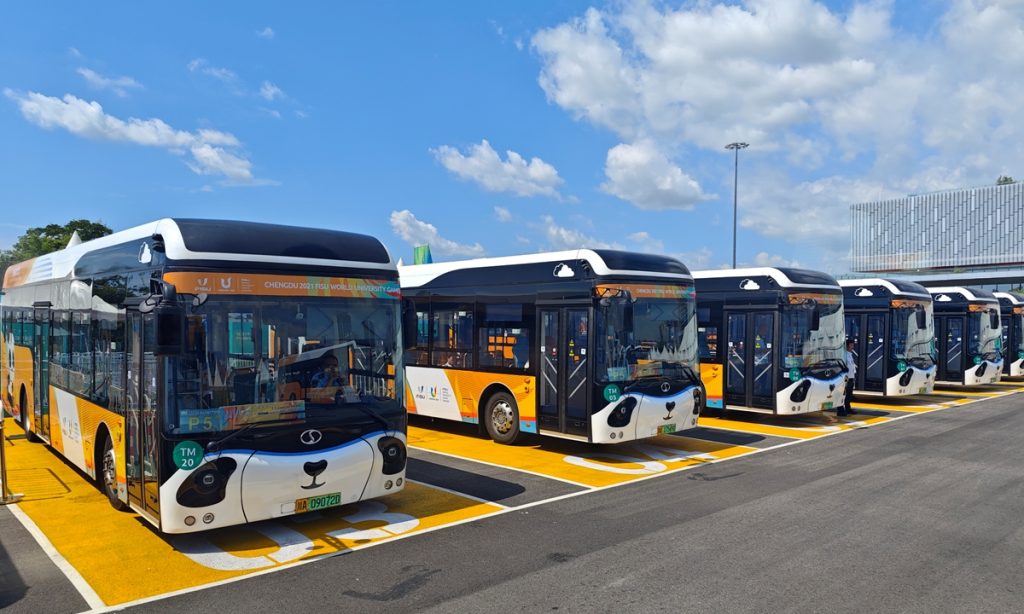Chinese ministries dangle subsidies to spur cities to renew new-energy buses

China’s Ministry of Transport and Ministry of Finance on Wednesday issued detailed rules for the subsidies targeting the renewal of new-energy city buses and batteries. On average a subsidy of 80,000 yuan ($11,065) will be paid to a city new-energy bus.
According to the new framework, city bus companies are encouraged to reasonably choose different types of buses for replacement in accordance with passenger demand and existing public transport infrastructure.
For renewing new-energy city buses, the average subsidy per vehicle is 80,000 yuan; for replacing the power batteries, the subsidy reaches 42,000 yuan. Localities should enact subsidy standards based on the funds arranged by the two central government ministries, the rules said.
It is the latest move of the ministries’ efforts to promote the country’s high-quality development and bolstering domestic consumption.
The Ministry of Transport on Wednesday outlined 11 highlights of its key work for the second half of the year, noting that it will promote large-scale equipment upgrading for transportation.
On the same day, the Ministry of Finance vowed to enhance local capacity to promote consumption, including subsidized funds for scrapping and renewal of automobiles, older heavy vehicles, as well as new-energy buses and power batteries, and trade-in of household appliances for new green ones.
The ministry noted that it will arrange some funding to localities to carry out trade-in of other categories of consumer goods. Specific support varieties and standards will be determined by local authorities in order to spur consumer spending.
On July 24, the National Development and Reform Commission and Ministry of Finance issued a number of measures on strengthening support for large-scale equipment replacement and consumer goods trade-in program, by leveraging 300 billion yuan from the ultra-long-term special treasury bonds proceeds.
Regarding the transport sector, the focus is on supporting the scrapping and renewal of old operating vessels and trucks, and raising the subsidy standards for the renewal of new-energy buses and batteries.